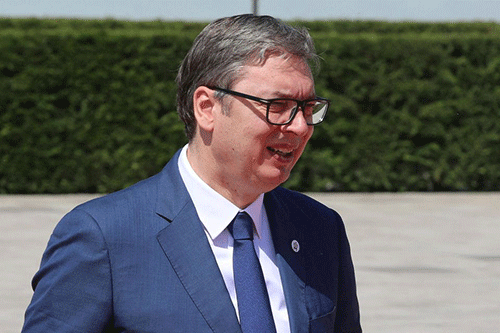Presidential advisor on constitutional affairs and private sector interface Inge Zaamwani-Kamwi yesterday cautioned Namibia to closely monitor the Russia-Ukraine conflict as it could impact the Namibian economy in different ways.
She cautioned that the country’s dependence on diamond mining as a driver for recovery could be in jeopardy due to the war.
“Russia contributes 31% of global diamond production, and because of sanctions and monitoring systems imposed due to the conflict, Namibia must be careful to rely on the diamond sector and must be aware of the risks that are expected in that sector.
The special military operations have a real indirect effect on the Namibian economy,” advised Zaamwani-Kamwi during a courtesy call at State House yesterday with the Bank of Namibia (BoN) leadership. According to BoN’s February economic outlook, the diamond mining sector is estimated to have grown by 2.3% in 2021, and is further projected to expand by 26.2% and 16.5% in 2022 and 2023, respectively.
Deputy governor at the central bank Ebson Uanguta shared similar sentiments, saying the conflict between Russia and Ukraine is a source of concern as it threatens to undo the progress made in recovering the global economy from the pandemic.
He noted that the conflict will result in even higher fuel prices and inflation, as well as faster policy normalisation than previously anticipated. He stated that Russia is not a small player in global production, as it holds 12% of oil, 16.6% of gas and 11% of global wheat production.
“Some of these key products, like oil in our case, has a direct effect on the lives of our people. So, it is a situation that we need to monitor,” Uanguta noted.
“Given that Russia holds 12% of global oil production, if oil sanctions are imposed, Namibia will definitely feel the pinch through an increase in inflation. Risks remain to the upside (inflation) since transport accounts for 40% of the price basket.
Oil has a direct impact on transport, which translates to the livelihoods of people, especially when it comes to the transportation of goods and services.” This month, Namibian consumers experienced one of the largest-ever fuel increases in the country’s history when petrol increased by N$1.20, and diesel jumped by N$1.30. Currently, local fuel prices are close to an unimaginable N$20 per litre as the price at Walvis Bay is N$17.15/litre for unleaded petrol and N$17.28/litre for diesel 50ppm.
Furthermore, BoN governor Johannes !Gawaxab said the bank has produced a number of applied research outputs with the goal of providing evidence-based solutions to economic recovery. One recent study focused on how to maximise the water resource of the Neckartal/Naute dams. “The study recommends an aggressive investment promotion exercise with local and foreign investors to partner with government in this project,” he observed. He stated that despite the low interest rate environment that prevailed in 2021, the bank recorded a higher surplus in 2021 than in 2020, and shall declare a record dividend later this month. The higher surplus in 2021 was largely due to capital gains realised from foreign reserve assets, as well as cost-cutting measures implemented by the bank. “In this regard, the board has decided, in consultation with the finance minister, to use a portion of the dividend as additional seed capital for the newly- established Sovereign Wealth Fund,” said !Gawaxab.



